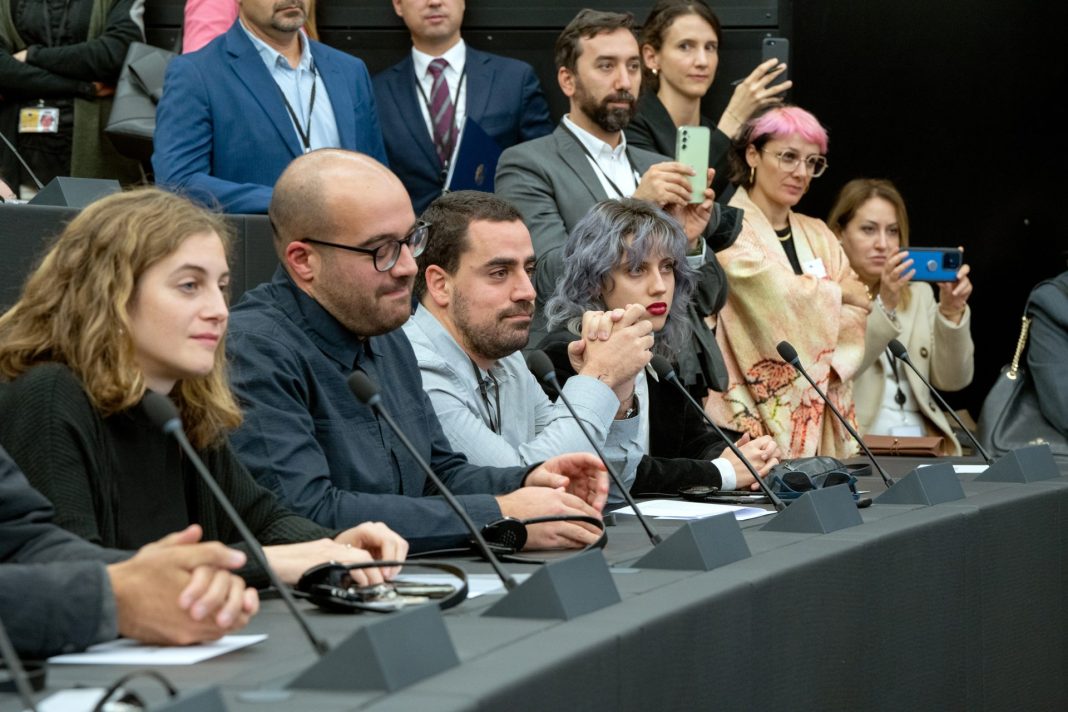Set during the 1972 Munich Olympics, Tim Fehlbaum’s September 5 tracks the ABC Sports crew’s coverage of the Israeli athlete hostage crisis in the Olympic Village: the first terror attack broadcast live to the world. It’s determined to give us a realistic depiction of the journalists’ work, led by newly-promoted Geoff Mason (John Magaro).
Near-everything happens in the team’s broadcasting rooms, whether it’s the painstaking editing of tapes smuggled through Olympic Village security, or Mason cueing shots from a bank of square monitors. There’s a deep reverence for the physical work these journalists do, coupled with a powerful hit of nostalgia from constant close-ups of wires and machinery – unflinching commitment to historical accuracy.
The film largely disregards the politics of the event, as Fehlbaum has said he was focused on the act of journalism, not politics. It’s hard to begrudge him for that artistic choice, especially knowing the film was fully edited before the October 7 attacks and the atrocities that followed. Having said that, placing such heavy emphasis on his film’s depiction of journalistic work means Fehlbaum may have ended up creating a rod for his own back. For September 5’s perspective on journalistic ethics in many ways falls just as short as its politics.
Geoff Mason is at the heart of the film’s attempt to tackle those challenges. It is his decision to track the police’s first rescue attempt with a balcony camera, realising too late that the captors are watching their footage on TVs in the athletes’ rooms. They’re lucky it doesn’t result in a death, but still he presses on. It is also his choice to lead on news of a successful rescue before he receives confirmation from other sources, directly against the words of his superior Marvin Bader (Ben Chaplin). These are both significant failures. They lead directly to the devastating moment presenter Jim McKay turns to camera and says that the hostages were not in fact rescued, but killed in a police shootout.
Fertile grounds for examining the ethics of broadcasting, then. But it never feels like the ABC crew has to reckon with those mistakes. After their filming sabotaged the first rescue attempt, German soldiers storm in and order their broadcast to be shut down. Within minutes, they’re back to reporting, with no consequences, and no second thoughts about the effects their coverage might be having. The film seems to assume we’ll be on ABC’s side, but it’s difficult to argue with the Germans’ attempt to keep their operation viable.
One journalist’s later decision to hide from a police search of the surrounding buildings escapes comment entirely. And, though we end with a shot of Mason slumped over his car’s dashboard, his flawed approach is in fact rewarded: Roone Arledge (Peter Sarsgaard), the head of ABC Sports, leaves us with no uncertainty about Geoff’s impending promotion.
In some ways, the film’s devotion to the historical record seems to restrict it at moments like these – it ends up being about the broadcast, and little else. The minor characters display a little of the effects of that relentless focus. The crew’s translator is given a thin anti-sexism plotline; Bader’s Jewish heritage is briefly mentioned: otherwise, near-total silence. The impression we get is ultimately that the news matters more than the stories. ABC’s journalists are beyond reproach, for they are simply recording history, not making it.
September 5 is in many ways a frustrating watch. It’s a frantic, tense, and exceptionally well-crafted film. But in its attempt to perfectly recreate the events of the 1972 Munich massacre, it forgoes a far more foundational aspect of the craft it so reveres: holding to account those with the power to shape the narrative.


